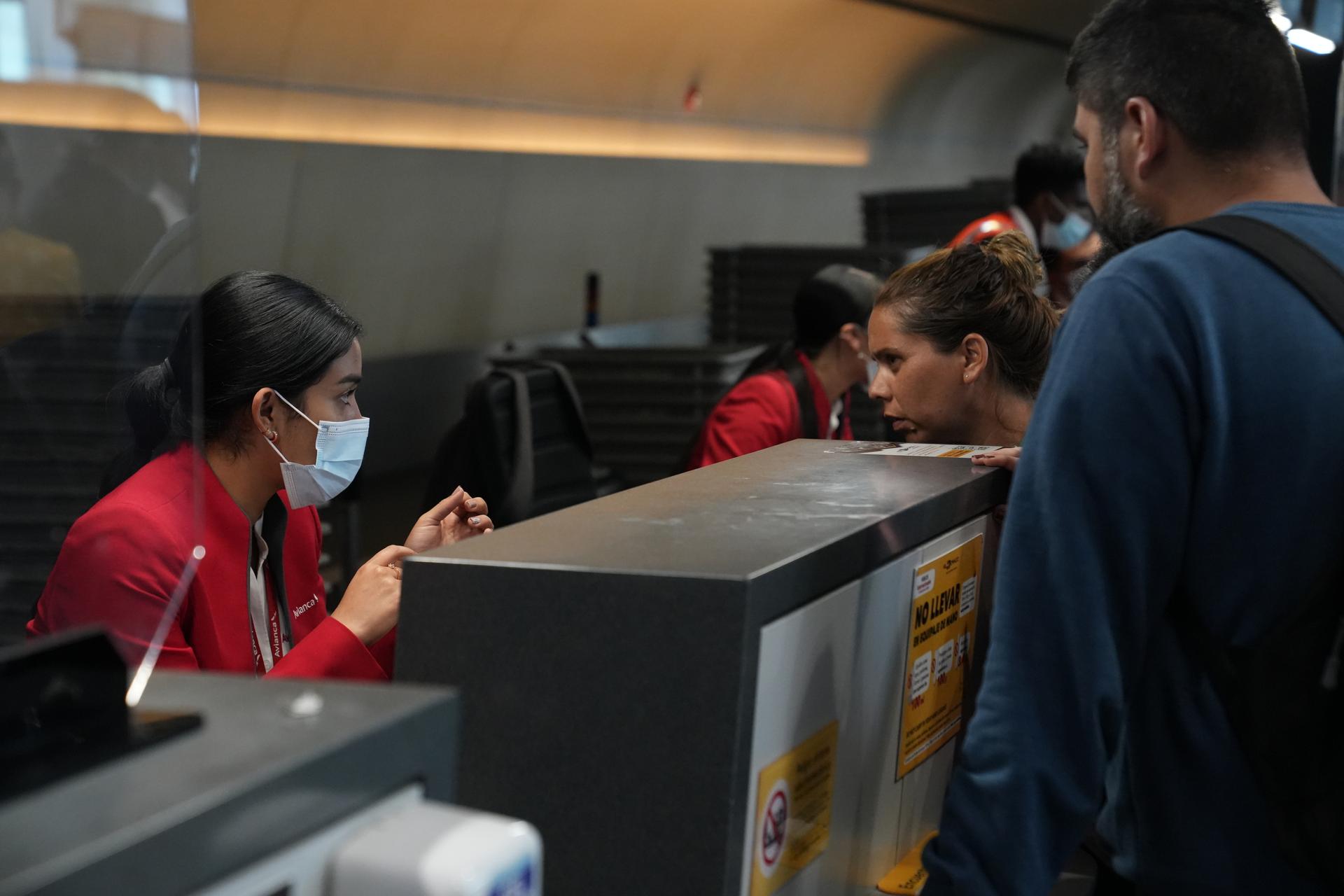Thousands of passengers are stranded after Colombia’s Viva Air grounds flights
After her Viva Air flight from Colombia to Argentina was canceled on Thursday, Alexa Herrera spent hours in line at Bogotá’s airport, trying to get a seat on another airline.
But she was told that there was no space on any flights until next week.
“This is terrible,” she said. “I have to get back to work, and my son starts school on Monday.”
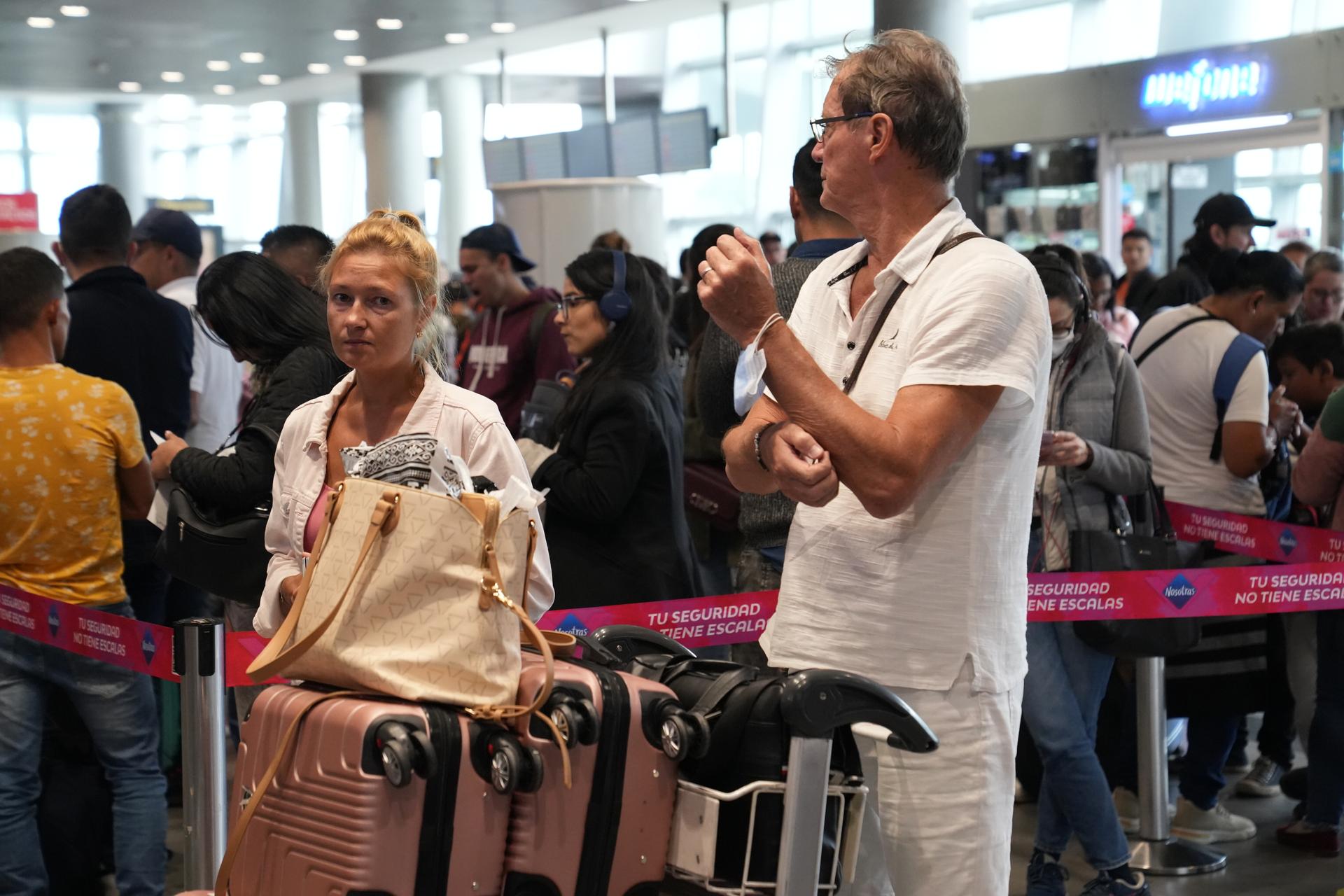
Thousands have been stranded at airports across Colombia and in several other Latin American countries following the closure of Viva Air, a budget airline that ran dozens of routes within Colombia, as well as several international routes.
The airline grounded its fleet of 18 Airbus planes on Monday night, claiming it could not afford to stay in business. It has refused to refund ticket holders, or help its passengers with lodging or food.
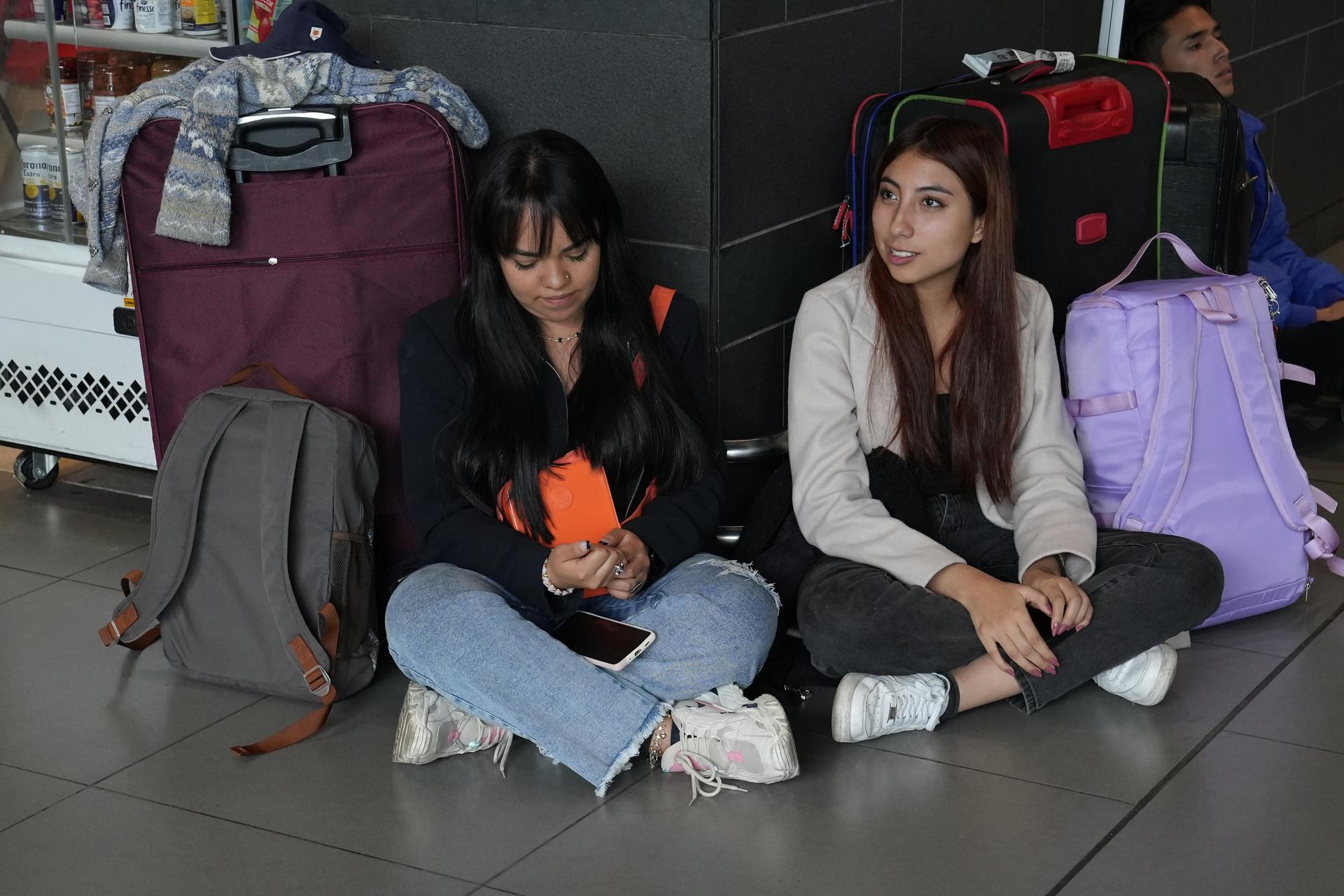
“You can’t even find their staff at the airport anymore,” said Sara Gutierrez, another traveler who was stranded at the airport. “They don’t answer the phones or respond online.”
In other cities like Medellín, Viva’s employees did show up at the airport, but to protest for flights to be restored.
“We want to work,” they chanted.
Since the pandemic broke out, 68 airlines have gone bust, including British low-cost airline Flybe and Italian legacy carrier, Alitalia.
Aviation analyst Miquel Ros keeps a list of these disappearing airlines on his website, Allplane.
“The large airlines that went under during the pandemic, many of them were already in a sort of chronic mismanagement and financial stress,” he said. “So, the pandemic was a bit like the last straw.
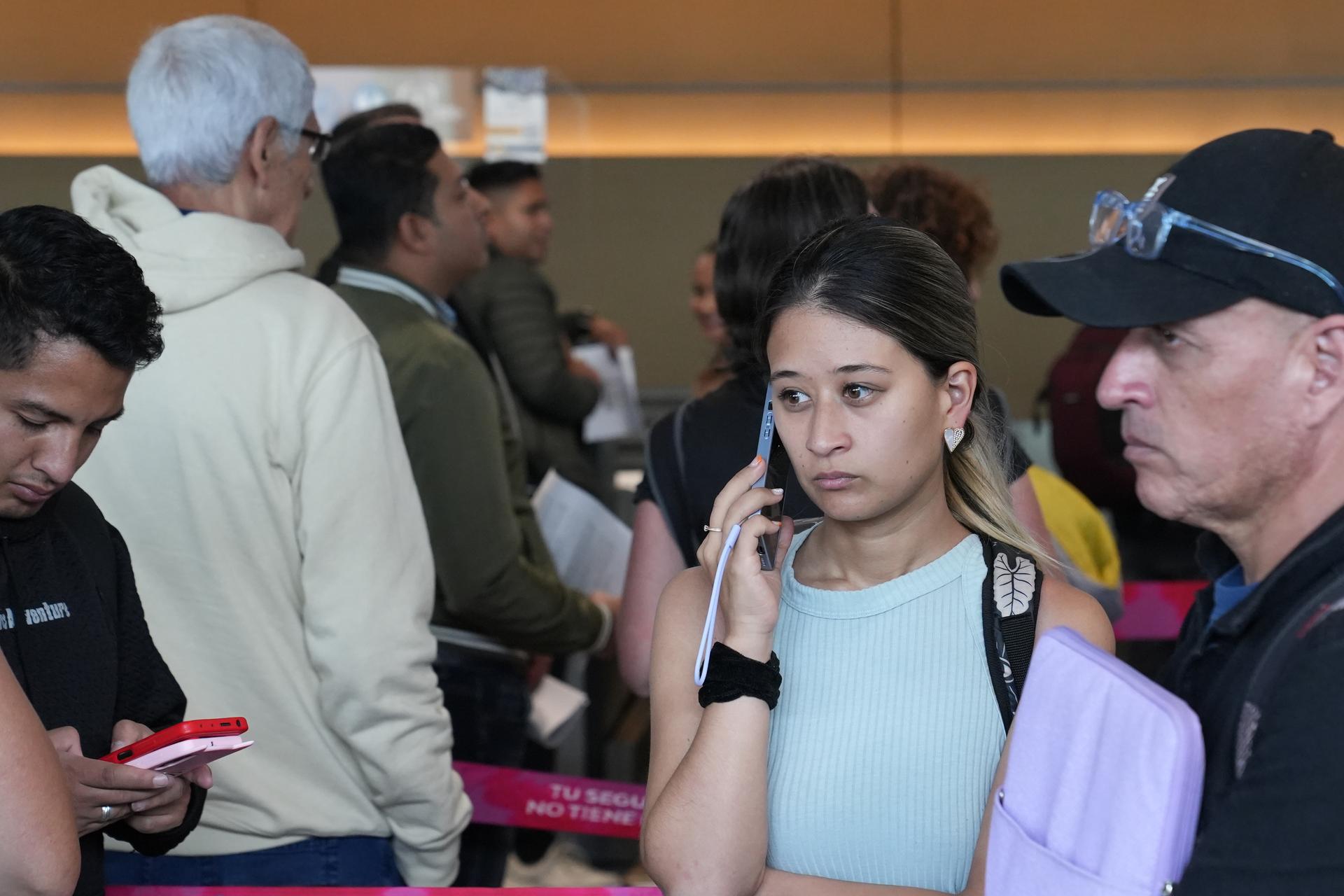
Industry experts say that Viva was especially hard hit by the devaluation of Colombia’s currency, which lost 25% of its value to the US dollar last year.
“Viva was making most of their money from domestic flights where they got paid in Colombian currency,” said Juan Felipe Reyes, an aviation lawyer in Bogotá.
“But their expenses, such as buying fuel or renting planes had to be paid in US dollars, making it hard for them to keep up.”
Viva says that it wants to merge with Colombia’s largest carrier Avianca, so that it can restart operations.
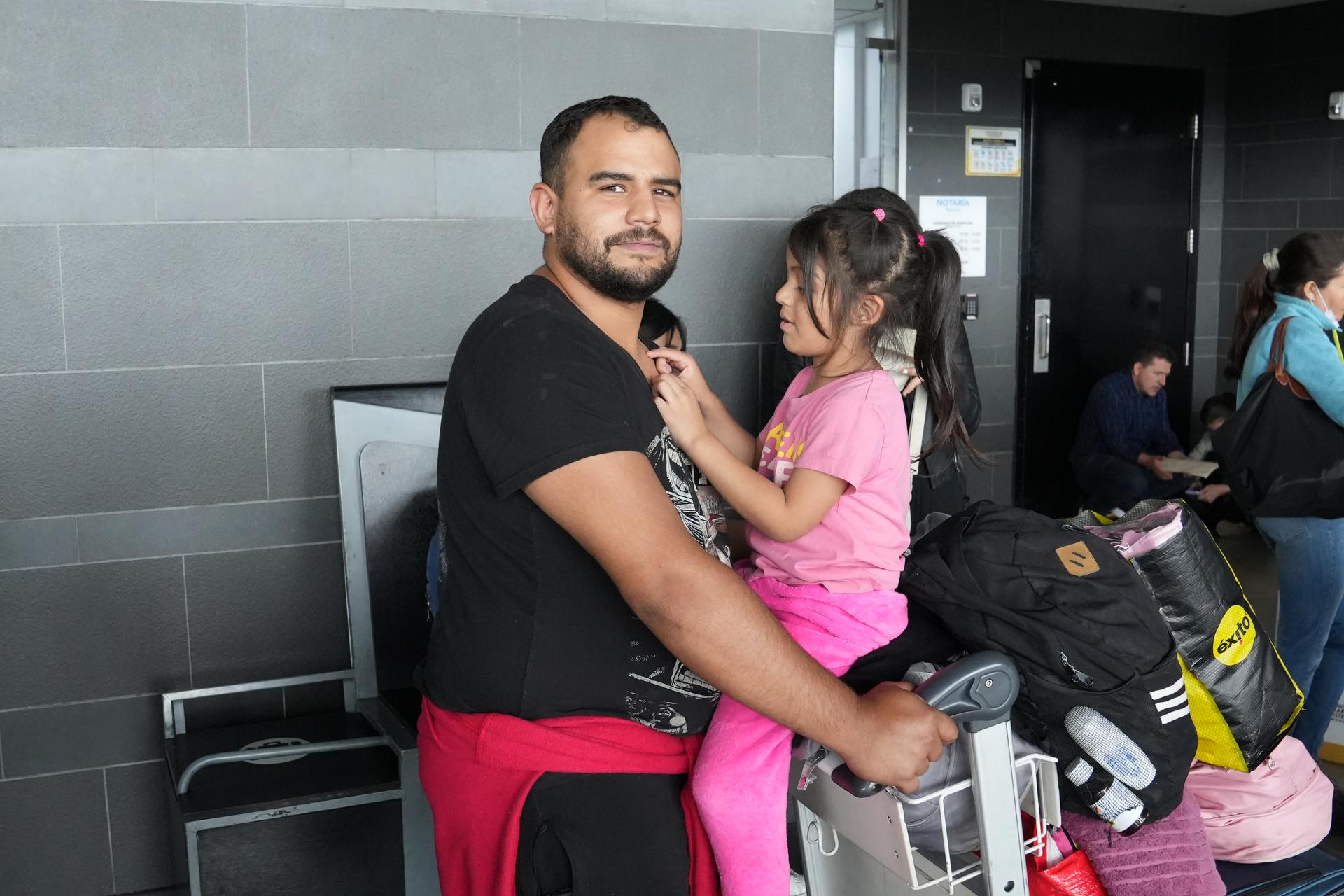
But regulators have been reluctant to approve that, because they fear that if both airlines unite, they would monopolize many routes.
Meanwhile, at the airport in Bogotá, Viva passengers continue to line up at ticket counters, hoping to get transferred to other airlines.
For Miguel Rodriguez and his two daughters, ages 2 and 4, a cheap flight back to Peru has turned into a nightmare.
“I’m a grown man, and I can withstand this” he said. “But for my daughters, it’s more difficult. So, I need help for them.”
But even as airlines like Viva take a nosedive, new airlines are taking off every month.
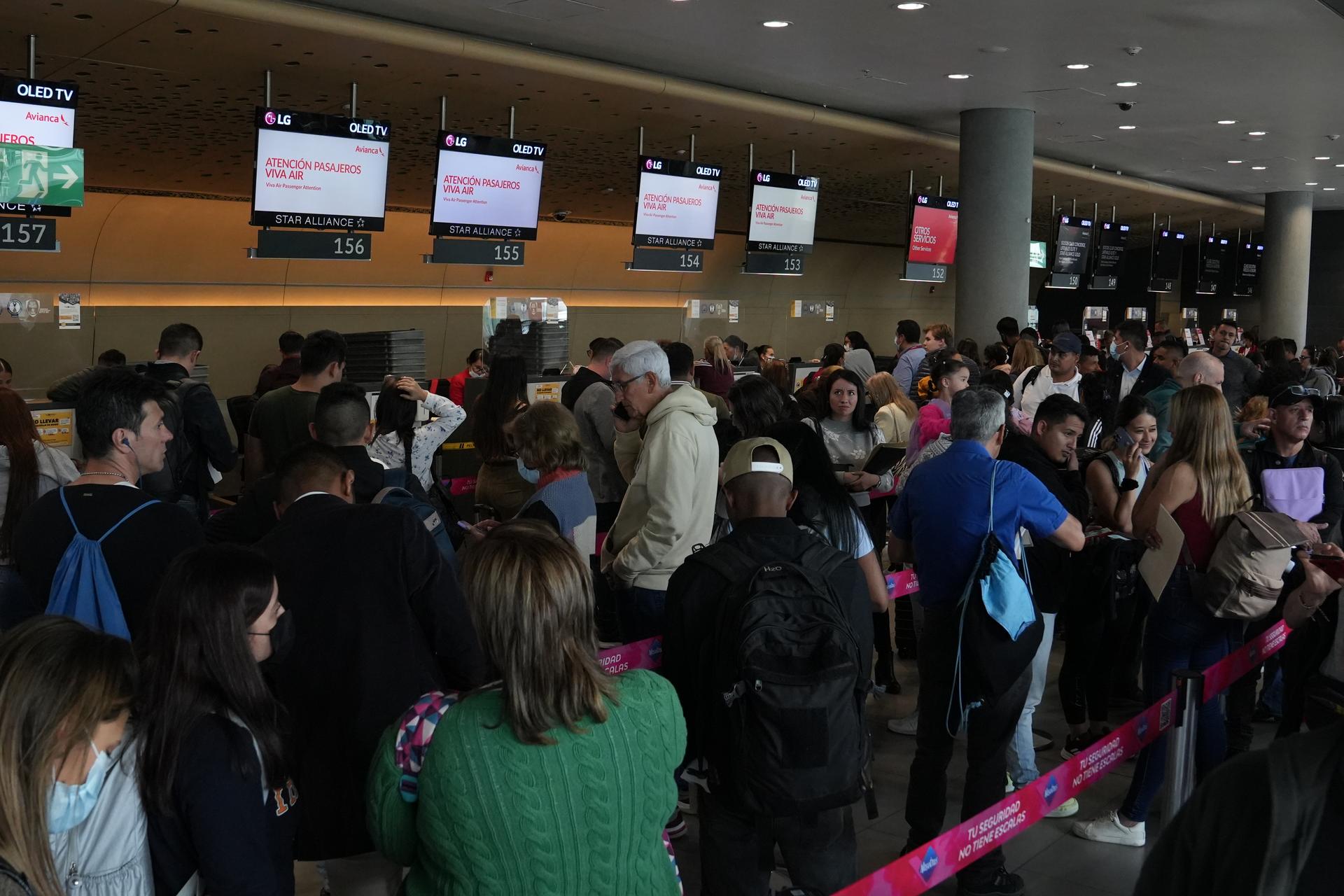
Ros, with AllPlane, said that 37 airlines were founded across the globe last year, including another budget airline in Colombia.
“This is an industry that is full of crazy people — I’ll say that in a nice way, that are willing to go into this very, very competitive industry and try their luck.”
Ros said that aviation may not be the most stable industry. And it can be affected by pandemics, wars or collapsing currencies. But it still captures the imagination of many entrepreneurs.
